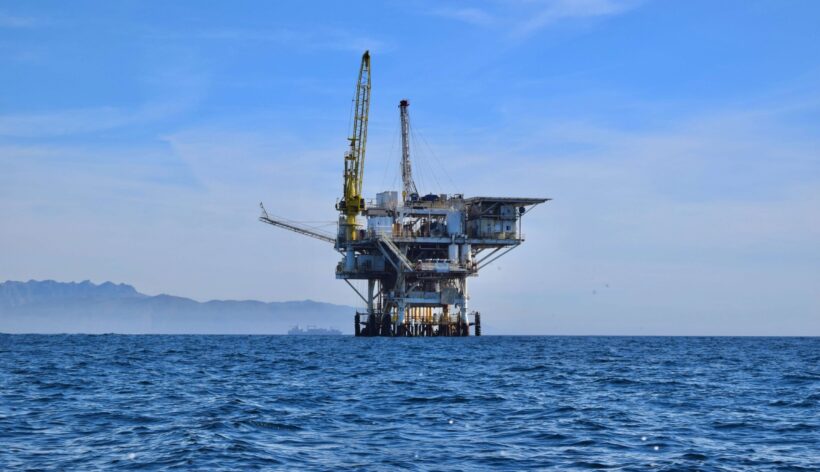Our Offshore Accidents Lawyers have decades of experience in aggressively pursuing offshore injury and Jones Act cases.

Offshore Explosions
Oil rigs, drilling platforms and other crafts used for extracting oil and natural gas have been some of the deadliest workplaces on land or sea. The volatile nature of oil and natural gas can cause it to explode and wreak havoc on workers. High pressure, cracks, leaks, breaks, collisions and foreign objects can cause a pipeline to release the highly explosive material in fiery chaos. Workers can suffer severe burns and fatal injuries that leave families stunned and agonizing for their loved one. When oil companies and workers fail to follow safety standards or equipment fails, explosions can instantly devastate lives.
Equipment Malfunction
Machines used on vessels contain many moving parts and utilize sophisticated technology. The complex nature of the machines creates an increased risk for malfunction or failure. When the machines do not work properly they threaten worker’s safety and can result in serious injuries.
Defective Equipment
Maritime workers’ safety and lives are entrusted to the equipment they use. Even if everybody follows the correct procedures, an accident can still happen due to defective equipment. Companies and manufacturers should take extreme care to ensure the equipment they provide workers will do its job. Defective equipment leaves workers almost helpless against serious injury or death that they could not have foreseen.
Slips, Trips And Falls
Proper housekeeping is always important when working offshore. Maintaining a clean and obstruction free deck allows seamen to operate safely and efficiently. Reasonable caution should be taken to make the deck as safe as possible to prevent slips, trips and falls which can cause numerous injuries to crew and passengers.
Safety Failures
Safety devices on any type of vessel provide security from accidents. When they fail or malfunction people often are left with little to no defense. Vessel owners must ensure safety devices and procedures are working and up to date. If they fail to do so and an accident results they may be liable for the results.
Commercial Fishing
Commercial fishermen deal with changing weather, choppy seas, long hours, grueling labor and other hazards on the open sea. Workers can fall overboard, injure themselves or others, misuse equipment, slip and have numerous other accidents. As workers do all they can to support the mission of the vessel, owners should engage in reasonable measures to protect their workers. Whether working inside or outside a commercial vessel, you have benefits and protections in the result of an injury aboard a commercial fishing vessel.
Collisions
Navigating the high seas requires skill and concentration. Whether a tug boat or oil tanker or other vessel has a collision or allision the results can be catastrophic to seamen. Boats should be navigated with caution to avoid collisions with other vessels, land and other objects it might encounter. Reasonable care will almost certainly avoid a crash but sometimes this does not happen.
Oil Spills
Explosions, aging, breaks, corrosion, leaks, pressure, foreign objects, and defective parts among other things could cause a pipe to spill oil into the ocean. This creates a devastating effect to the environment and could harm any individuals around it.
Loss Of Fingers Or Limbs From Machines
Close work with machines, tools and other equipment prevalent on offshore vessels creates a risk for injury. Lost or damaged fingers and limbs may happen and if reasonable care wasn’t taken to prevent it the employer or vessel owner may be liable for negligence
Drug Or Alcohol Leading To Accidents
Maritime workers need a clear mind and body to navigate the numerous hazards of their job. Unfortunately, not everybody uses good judgment. This failure to use good judgment can put others in danger with their intoxication from drugs or alcohol. This irresponsible behavior can lead to numerous accidents whether to coworkers or others that come into the surrounding area.
Crane Failures
Cranes are frequently used in the maritime industry to move heavy materials. When they break, malfunction or the operator blunders all around face immense danger. Falling materials can injure or kill and care should be taken to reasonably avoid such incidents
Fitting And Welding Accidents
Maritime workers, especially at sea, have to perform numerous jobs. Some may include fitting, welding or repairing objects. Sometimes if the proper equipment or safety is not provided an injury can happen
Towing Barges Mishaps
Tugboats and towing barges employ heavy towing lines, cables and powerful equipment. Lines breaking loose, workers getting trapped or pulled into lines, slips, machine malfunctions and other hazards make working on those vessels highly dangerous. The small size of decks compared to the amount of equipment they possess create many obstacles on deck as well. Employers and vessel owners have an obligation to provide a reasonably safe environment. Otherwise workers can get injured or killed.
Toxic Exposure
Transporting chemicals and other toxic materials requires extreme care and protection from exposure. The safety of all those involved in the process should be prioritized. To ensure this companies must provide proper warnings and training to all their employees who might encounter these dangerous substances. Companies also should sufficiently research potential dangers for exposure and create plans to minimize damage in case of contact. Effects from exposure may not be readily apparent and could take years to develop but companies can still be held liable for putting workers in danger.
Extreme Weather Exposure
Weather in the ocean develops quickly and passes unforgivingly. Companies should never compromise the safety of crews and aim to protect them from the elements to a reasonable degree. When a company puts employees in foreseeable danger from weather they may be liable for accidents that occur. If your injury is caused by tropical cyclones, hurricanes, waves, wind, rain, sleet, extreme temperatures or any other natural elements that could have been reasonably avoided or mitigated it would be wise to contact an experienced maritime attorney.
Fire
Fire on offshore vessels creates considerable danger. The proximity to flames along with limited time and space to operate enhances the effects. Fire could arise from offshore drilling activities which encounter highly flammable oil and natural gas. If fire arises from an explosion or other accident it can lead to life altering injuries and death. If you or a family member have experienced this tragedy please contact an experienced attorney to understand your rights.
Inadequate Safety Or Training
Maritime work requires specialized skills and training. Companies must train all their crew to do their jobs safely. This could include not knowing how to use equipment, work with others or employ safety measures. If you are hurt by the actions of other crew members due to inadequate safety or training, you may have a case for negligence.
Exhaustion Or Overuse Leading To Accidents
Working long hours in grueling jobs can build up. Sometimes companies will pressure seamen to work longer than they should. This overwork could bring exhaustion. Exhausted workers can’t function at full capacity physically or mentally. A minor lapse can create a major accident. The repetitive use of your body can also cause it to break down and injure yourself overtime. If an accident happens due to overwork or exhaustion you may hold the vessel owner liable. Undersupplying the crew overstretches abilities and increases the danger for all around.
Piracy And Hijackings
While popularized in television and movies, piracy and hijackings pose a real threat to the maritime industry today. Vessel owners must ensure the crew is reasonably protected and prepared against potential pirates or hijackers. Companies often skirt the safety of their crew in the name of profits. If this negligence occurs, the crew may be able to hold their company liable and receive damages.
Helicopter And Transportation Accidents
Transportation to offshore installations frequently occurs onboard helicopters. Crashes of these lead to numerous injuries and are the highest cause of death in the industry. Just getting to the offshore workplace is the most dangerous part of the job according to studies by the CDC. Mechanical failures, weather, and operator error can cause helicopters and other transportation means to turn into a life altering experience
Deck And Dock Accidents
Maritime workers work on decks, docks and other surfaces that pose great danger to their well being. Water, chemicals and other substances can make them extremely slippery. Moving equipment and misplaced materials can make it tough to maneuver numerous obstacles. Serious injuries can result from a slip, trip or fall experienced by a worker. If employers fail to properly maintain working surfaces and reasonably work to prevent incidents, they may be found liable for negligence.
Diving Accidents
Commercial Diving requires incredible skill and training. Working in an underwater environment is almost always hostile and unpredictable. Life altering injuries and death are ever present dangers and possible. Falling objects, marine life, explosions, equipment malfunction, reduced visibility, weather and other dangers can create injuries.
Ship Building, Breaking And Salvaging Accidents
Building, breaking and salvaging vessels creates numerous dangers for maritime workers. The powerful equipment used on heavy and unstable ship parts can easily injure or kill workers. Falling parts can easily cause workers to lose limbs, crush their bodies and various life altering injuries. Reasonable care must be given to ensure the safety of the workers. Coworkers must be well equipped and trained to complete their jobs safely.
Onshore Accidents
Although not exposed to the open sea, dock workers still face numerous hazards. Equipment used to load and unload cargo, like cranes, lifts, trucks, carts, and forklifts, can hit, fall or break leaving workers at risk of serious injury or death. Boats crashing into docks and exposure to chemicals and fire can alter workers for life.
ABSOLUTELY NO COST TO YOU UNLESS WE WIN.
The Offshore Accidents Lawyers at Doyle Dennis LLP have vast experience in offshore claims and understand numerous federal maritime laws, such as the Jones Act law, that apply to offshore claims. Our Texas firm works every day to help clients across state lines and international borders in their maritime accident claims


